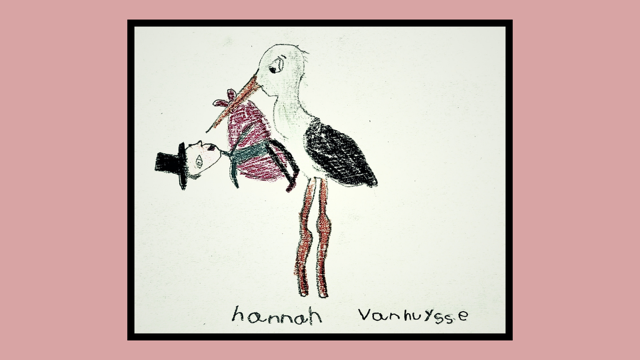Taxing the Stork
Nancy Folbre
14 January 2024New empirical research reveals why European family support policies, while far more generous than those of the U.S., are not as “pro-parent” as they claim to be

Of the many stories purporting to explain why children are sometimes told that storks deliver our human babies, here is my favorite: During the pagan era in northern Europe the summer solstice was believed to be auspicious for fertility, so many weddings were timed to coincide with it. Also at the solstice, many storks would head south to winter in warmer climes, returning nine months later in the spring to build their nests. As a result, storks became an augury of human births.
I’m not sure what is happening to the European stork population, but birth rates for European humans are now below replacement levels. The environmental impacts will eventually be positive; hopefully even storks will benefit. Meanwhile, the economic impacts will be stressful. Like the rest of the world, the region depends heavily on its younger generation to support and assist its old folks.
In the U.S., where birth rates are also now below replacement, many advocates for pro-family policies point to countries like Sweden and France, whose public spending on the younger generation as a percentage of their total economic output far exceeds our own. Universal childcare and paid family leaves seem like good ways to invest in children.
A closer look at public finance reveals a somewhat different picture. Most of the time and money that parents devote to children is considered “private” and therefore not tallied as an economic contribution. Even where childrearing is publicly subsidized, private expenditures add up to a very hefty sum, especially when the value of parental time is factored in. Plus, parents pay a hefty share of the taxes paid to support public programs. Add these two together and it seems that parents are subsidizing non-parents, not the other way around.
Conservatives sometimes claim that welfare states providing pensions and health care have “crowded out” parenthood, rendering childrearing economically obsolete. Actually, the opposite seems to be the case. Welfare states depend heavily on parents, because they capture a significant share of future adults’ income through taxation, effectively socializing the economic benefits that parents helped produce.
Defined in terms of their commitments to children rather than just their DNA, parents “invest” in something that eventually pays off for everyone. Non-parents get a sizeable bonus—lifetime benefits that are large compared to their lifetime contributions, which don’t include the private costs of producing new workers and new revenues.
The implicit transfer of resources through the state helps explain why the net costs of raising children have rapidly increased, and why parents are economically disadvantaged, one might even say… exploited.
This interpretation of intergenerational transfers has been brewing for some time but has only just begun to find empirical validation. In a new study published in Royal Society Open Science, Pieter Vanhuysse, Márton Medgyesi and Róbert Iván Gál provide a detailed analysis of public transfers plus private expenditures and unpaid household labor time in 12 European countries around 2010. They use this data to calculate the average parental/non-parental contribution ratio in new terms. The short answer: it’s very high.
Pieter Vanhuysse’s recent blog post explains in more detail how “taxing reproduction” creates incentives to opt out of parenthood.
The cover picture is designed by Hannah Vanhuysse
This work is licensed under a Creative Commons Attribution-NonCommercial-NoDerivatives 4.0 International License